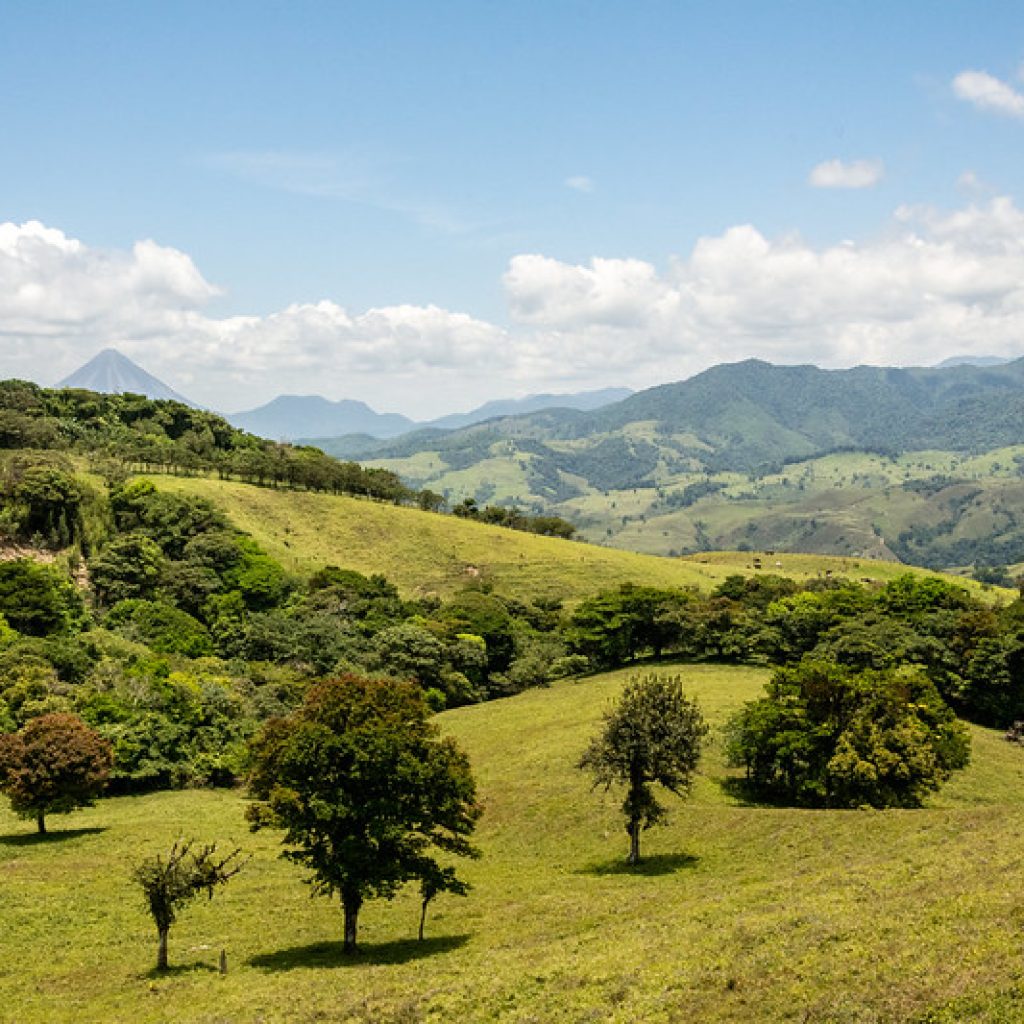In recent years, discerning travelers have witnessed a significant shift in preferences when it comes to travel experiences. The conventional vacation model, characterized by leisurely activities and sightseeing, is gradually giving way to a more purposeful and transformative alternative—the wellness retreat. This evolution reflects a growing recognition that travel can be more than just a temporary escape; it can be a holistic investment in one’s well-being.
Wellness retreats have emerged as a profound departure from traditional vacations, offering a comprehensive approach to health that extends beyond the typical spa day. This departure from the conventional signifies a broader change in attitudes towards travel, emphasizing the importance of personal growth and overall well-being. As we explore the transformative journey from spa-centric getaways to holistic health retreats, it becomes evident that a new era of travel is upon us—one that prioritizes the mind, body, and spirit in equal measure.
The Concept of Holistic Health
The foundation of wellness retreats lies in a profound commitment to holistic health, a concept that extends far beyond traditional vacation paradigms. In this context, holistic health is defined not merely as the absence of illness but as a comprehensive state of well-being that integrates physical, mental, and emotional dimensions.
Within the framework of wellness retreats, a distinctive emphasis is placed on the mind-body connection. This goes beyond the surface-level treatments associated with spa days, delving into a more nuanced understanding of how mental and physical well-being are interconnected. Attendees are encouraged to engage in practices that foster mindfulness, such as meditation and yoga, recognizing their role in promoting a balanced and harmonious lifestyle.
Moreover, wellness retreats intentionally incorporate spiritual and cultural elements, recognizing their impact on an individual’s overall health. This acknowledgment underscores a departure from the often superficial experiences of traditional vacations, presenting a more profound and enriching approach to travel.
As travelers increasingly seek meaningful and lasting benefits from their experiences, the concept of holistic health within wellness retreats stands as a beacon of a more thoughtful and intentional approach to well-being. This departure from the norm signals a significant paradigm shift—one that positions holistic health at the forefront of the travel industry’s evolution.
Diversification of Activities
Moving beyond the conventional spa-centric focus, wellness retreats distinguish themselves through a diversified array of activities that cater to the multifaceted nature of well-being. Unlike traditional vacations, where leisure often takes center stage, these retreats offer a carefully curated selection of wellness programs, each contributing to a more comprehensive and personalized experience.
The exploration of diverse wellness activities at these retreats goes beyond the typical offerings of massages and facials. Participants engage in a range of activities that integrate fitness, meditation, and nutrition programs. This intentional blending of physical and mental exercises serves to address various facets of an individual’s health, fostering a more well-rounded approach to overall well-being.
Furthermore, the customization of experiences plays a pivotal role. Wellness retreats acknowledge the uniqueness of each individual, offering tailored programs that cater to specific needs and preferences. This departure from the one-size-fits-all approach of traditional vacations reflects a commitment to providing meaningful and personalized experiences, ensuring that attendees derive maximum benefit from their time invested in these retreats.
As wellness retreats redefine the landscape of travel, the shift towards a more diversified and personalized approach to activities underscores a departure from the norm. This departure reflects a broader understanding that true well-being is a holistic endeavor, encompassing physical, mental, and emotional dimensions—a realization that continues to shape the evolving narrative of travel preferences.
Immersive Environments and Natural Settings
Wellness retreats redefine the concept of an ideal setting, emphasizing the importance of immersive environments and natural surroundings in fostering holistic well-being. Unlike traditional vacations, where the focus often lies on external attractions, these retreats recognize the intrinsic link between one’s surroundings and mental and emotional well-being.
The importance of location goes beyond mere aesthetics. Wellness retreats intentionally choose settings that create an atmosphere conducive to relaxation and self-reflection. This deliberate selection acknowledges the impact that natural elements have on the overall wellness experience, recognizing that a harmonious environment contributes significantly to mental and emotional rejuvenation.
The connection to nature becomes a crucial component of wellness retreats. Participants are not passive observers but active participants in outdoor activities, enhancing the mind-body connection. This departure from the confined spaces of traditional vacations encourages a deeper engagement with natural elements, providing a profound sense of tranquility and balance.
Influence of serene surroundings on mental and emotional well-being is a key consideration. The deliberate choice of locations that evoke a sense of calmness fosters an environment where attendees can disconnect from the demands of everyday life. This intentional approach to immersive environments aligns with the overarching goal of wellness retreats: to provide a space where individuals can recalibrate and prioritize their well-being in a holistic manner.
As the travel landscape evolves, the emphasis on immersive environments and natural settings within wellness retreats stands as a testament to a more considered and intentional approach to travel—one that recognizes the pivotal role of surroundings in the pursuit of holistic health.
Culinary Experiences: Nourishing the Body
Within the context of wellness retreats, culinary experiences transcend the ordinary, focusing on nourishing the body in a manner that goes beyond mere sustenance. Unlike traditional vacations, where indulgence often takes precedence, these retreats place a deliberate emphasis on promoting health through culinary choices.
The approach involves a conscientious effort to emphasize healthy, locally sourced cuisine. Meals are crafted with a keen awareness of nutritional value, catering to the specific needs of individuals seeking a holistic approach to well-being. This departure from the often indulgent nature of traditional vacation dining aligns with the overarching goal of wellness retreats: to provide participants with sustenance that not only delights the palate but contributes positively to their overall health.
Culinary education and workshops further distinguish these retreats. Attendees have the opportunity to gain insights into the nutritional aspects of their meals, fostering a deeper understanding of the connection between food and well-being. This intentional focus on education reflects a departure from the passive consumption associated with traditional vacations, encouraging a more mindful and informed approach to dietary choices.
The role of nutrition in overall wellness is a key consideration. By elevating culinary experiences to a holistic level, wellness retreats acknowledge that what we consume plays a crucial role in the intricate balance of mind and body. This intentional approach to nourishing the body contributes to the overall mission of these retreats: to provide an immersive experience that addresses well-being from multiple dimensions.
Mindfulness and Stress Reduction
Central to the philosophy of wellness retreats is the incorporation of mindfulness practices and stress reduction techniques, offering a targeted approach to enhancing overall well-being. In contrast to traditional vacations, where relaxation often takes a backseat to activity, these retreats prioritize mental and emotional rejuvenation through intentional practices.
The integration of mindfulness into daily activities becomes a cornerstone of the retreat experience. Participants are encouraged to engage in practices such as meditation and yoga, fostering a heightened awareness of the present moment. This departure from the distractions prevalent in traditional vacation settings enables individuals to cultivate a sense of mindfulness, promoting mental clarity and focus.
Stress reduction techniques further underscore the commitment to holistic well-being. Wellness retreats provide attendees with tools and strategies to manage stress effectively, recognizing the impact of stress on both mental and physical health. These techniques extend beyond the duration of the retreat, empowering individuals to cultivate sustainable habits that contribute to long-term well-being.
The emphasis on mindfulness and stress reduction within wellness retreats reflects a departure from the norm, acknowledging that true relaxation involves more than just physical rest. By providing participants with practical tools to manage stress and cultivate mindfulness, these retreats contribute to a broader shift in how individuals approach well-being—a shift that prioritizes mental and emotional balance in an increasingly fast-paced world.
Community and Social Connection
A distinguishing feature of wellness retreats lies in the intentional cultivation of community and social connections, presenting a departure from the often individualistic nature of traditional vacations. Recognizing the impact of human interaction on overall well-being, these retreats place a deliberate emphasis on fostering a supportive and like-minded community.
The role of group dynamics in wellness retreats extends beyond shared activities; it becomes a cornerstone of the overall experience. Participants are encouraged to engage with one another, sharing insights and experiences that contribute to a collective sense of well-being. This departure from the often solitary nature of traditional vacations reflects an understanding that social connections play a crucial role in enhancing overall happiness and fulfillment.
Building a supportive community becomes a pivotal aspect of the retreat. Attendees are provided with opportunities to connect with like-minded individuals, fostering relationships that extend beyond the duration of the retreat. This intentional approach acknowledges the importance of sustained social connections in contributing to long-term well-being.
Enhancing overall well-being through shared experiences becomes a key focus. By prioritizing community and social connection, wellness retreats recognize that the journey to holistic health is not a solitary one. Instead, it is enriched and sustained through the relationships formed within the supportive community—a community that echoes the broader shift in recognizing the importance of social connections in the pursuit of well-being.
Expert Guidance and Personal Growth
A hallmark of wellness retreats lies in the provision of expert guidance and opportunities for personal growth, setting them apart from conventional vacations. Rather than the aimless pursuit of leisure, these retreats offer a structured environment with access to knowledgeable instructors and wellness experts.
Access to knowledgeable instructors ensures that participants receive expert guidance throughout their wellness journey. This departure from the absence of structured guidance in traditional vacations provides individuals with the tools and insights needed to make informed decisions regarding their well-being. These experts contribute a wealth of knowledge, assisting attendees in navigating the complexities of holistic health.
Opportunities for personal growth are intentionally woven into the fabric of wellness retreats. Far beyond the superficial experiences often associated with traditional vacations, these retreats create an environment that encourages self-discovery and personal development. The intentional inclusion of activities and workshops fosters an environment where individuals can explore new facets of themselves and cultivate a deeper understanding of their overall well-being.
The long-term impact on individual lifestyles is a key consideration. Wellness retreats are designed not merely as temporary escapes but as catalysts for lasting change. By providing expert guidance and fostering personal growth, these retreats contribute to a broader shift in travel preferences—one that recognizes the value of investing in oneself for sustained well-being and personal fulfillment.
Wellness Retreats vs. Traditional Vacations
A discerning examination of wellness retreats in comparison to traditional vacations reveals a profound shift in travel preferences, driven by a heightened awareness of holistic well-being.
In wellness retreats, the focus extends beyond leisure and sightseeing, centering on a comprehensive approach to health. Unlike the often passive experiences of traditional vacations, wellness retreats offer intentional programs that address physical, mental, and emotional well-being. The emphasis on diverse activities, mindfulness, and nutrition distinguishes these retreats as purposeful investments in personal health.
Contrasting elements further highlight the distinction. Traditional vacations often revolve around external attractions, while wellness retreats prioritize internal well-being. The deliberate choice of locations, immersive environments, and the cultivation of social connections contribute to an environment where individuals actively engage in their pursuit of holistic health.
Addressing misconceptions is crucial. Wellness retreats are not exclusive indulgences; they are accessible to individuals seeking meaningful and lasting benefits. The value proposition lies in the intentional focus on well-being, elevating these retreats beyond transient escapes to transformative experiences that contribute to sustained lifestyle improvements.
The comparison between wellness retreats and traditional vacations underscores a broader shift in travel preferences—one that signifies a departure from the conventional and an embrace of travel experiences that align with the pursuit of overall well-being. As discerning travelers seek more from their journeys, the choice between traditional vacations and wellness retreats becomes an intentional decision to prioritize health and personal fulfillment.
Conclusion
In conclusion, the evolution of travel preferences toward wellness retreats marks a substantial departure from conventional vacation norms. This shift underscores a growing recognition among discerning travelers that travel can be more than a temporary escape; it can be a purposeful and transformative investment in holistic health.
Wellness retreats, with their emphasis on diverse activities, holistic health, and intentional community building, present a meaningful alternative to traditional vacations. The departure from the typical leisure-focused model reflects an increased awareness of the interconnectedness of physical, mental, and emotional well-being.
As individuals increasingly seek more from their travel experiences, wellness retreats stand as a testament to this changing landscape. The deliberate choice of immersive environments, focus on mindful practices, and access to expert guidance positions these retreats as intentional steps toward sustained personal growth and well-being.
The comparison between wellness retreats and traditional vacations reveals not just a difference in activities but a fundamental shift in perspective. It is a shift from passive indulgence to active engagement with one’s health and personal fulfillment. In this evolving narrative of travel preferences, wellness retreats emerge as beacons of a more thoughtful and intentional approach—one that prioritizes well-being as an integral part of the travel experience.






No comment yet, add your voice below!